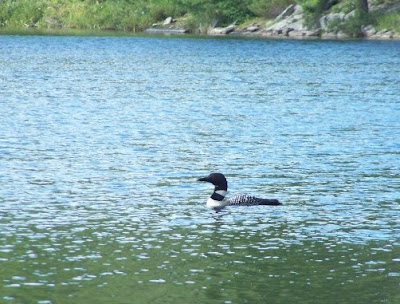 This summer my family signed up for a membership at the local Y. Nothing intentionally spiritual in this decision, we just wanted a bit of motivation to do some more active things together as a family. And that's primarily what it's been: the kids have signed up for karate, junior life-guarding club, swimming lessons; we've spent a few Saturdays together climbing on the climbing wall; we've made it down to the gym on a relatively frequent basis.
This summer my family signed up for a membership at the local Y. Nothing intentionally spiritual in this decision, we just wanted a bit of motivation to do some more active things together as a family. And that's primarily what it's been: the kids have signed up for karate, junior life-guarding club, swimming lessons; we've spent a few Saturdays together climbing on the climbing wall; we've made it down to the gym on a relatively frequent basis.
Like I say: there was nothing explicitly spiritual in this decision, we just wanted a bit of motivation.
But yesterday I was walking out of the gym after an early morning workout, aching arms and a vivid awareness that I was alive burning in my chest, and it struck me that the "C" in YMCA has always stood for "Christian." The roots are buried pretty deep now, but the YMCA was actually founded as a Christian movement, with the goal of improving the spiritual condition of young men in London England. Back in 1844, a London draper named George Williams was watching people flock to the cities looking for work, and seeing the effect of the Industrial Revolution on their spiritual well being. He was particularly concerned over the lack of healthy activities for young men, and their tendency to turn to unhealthy alternatives like gambling, brothels and taverns instead. So on June 6 he founded the first ever YMCA, with the Christian goal of helping young men develop a healthy "spirit, mind and body."
Again, those roots are buried deep now, but one hundred and sixty six years later, the YMCA still maintains its commitment to the three principles of healthy spirits/minds/bodies; and, while there is nothing explicitly Christian in its four core values, I doubt any Christian would take issue with a movement that encouraged caring, honesty, responsibility and respect.
I wonder, though, if there isn't something even more biblical to the three principles of healthy spirits, minds and bodies than meets the eye. Often the Christian understanding of the human being is coloured more by Greek philosophical categories than biblical ones, and so we tend to assume the physical body is somehow less important than the immaterial "soul," which, we hasten to add, constitutes the "true self."
Put differently: I don't "have a body," biblically speaking, I "am a body." Or, as Marrianne Hicks puts it: "'I' come into being and live and grow ... in the inextricable interconnection of matter and spirit” Or as Stan Grenz puts it: "We must follow the lead of ... the Bible... and adopt a holistic view of the human person. ... The human person is by design one indivisible reality."
What does all this have to do with the Christian life? I'm not exactly sure, but if these readings of biblical anthropology are right, then I am, by design, a "psychosomatic unity," mind, body and soul. And walking out of the gym, or off the squash court, or away from the climbing wall with aching arms and vivid breath burning in my chest, at the very least these moments are small, helpful reminders of that indivisible reality.
































 the start of the long walk
the start of the long walk

